The following interview is the result of a chance encounter I had last Sunday on a bridle path in Savernake Forest. It might have been the sickly-sweet aroma of decay that wafted from their steaming mounts. It might have been the way the glossy ivy withered, and the ebullient robins lapsed into silence, as they passed… something told me that this particular party of clip-cloppers didn’t hail from the local riding school.
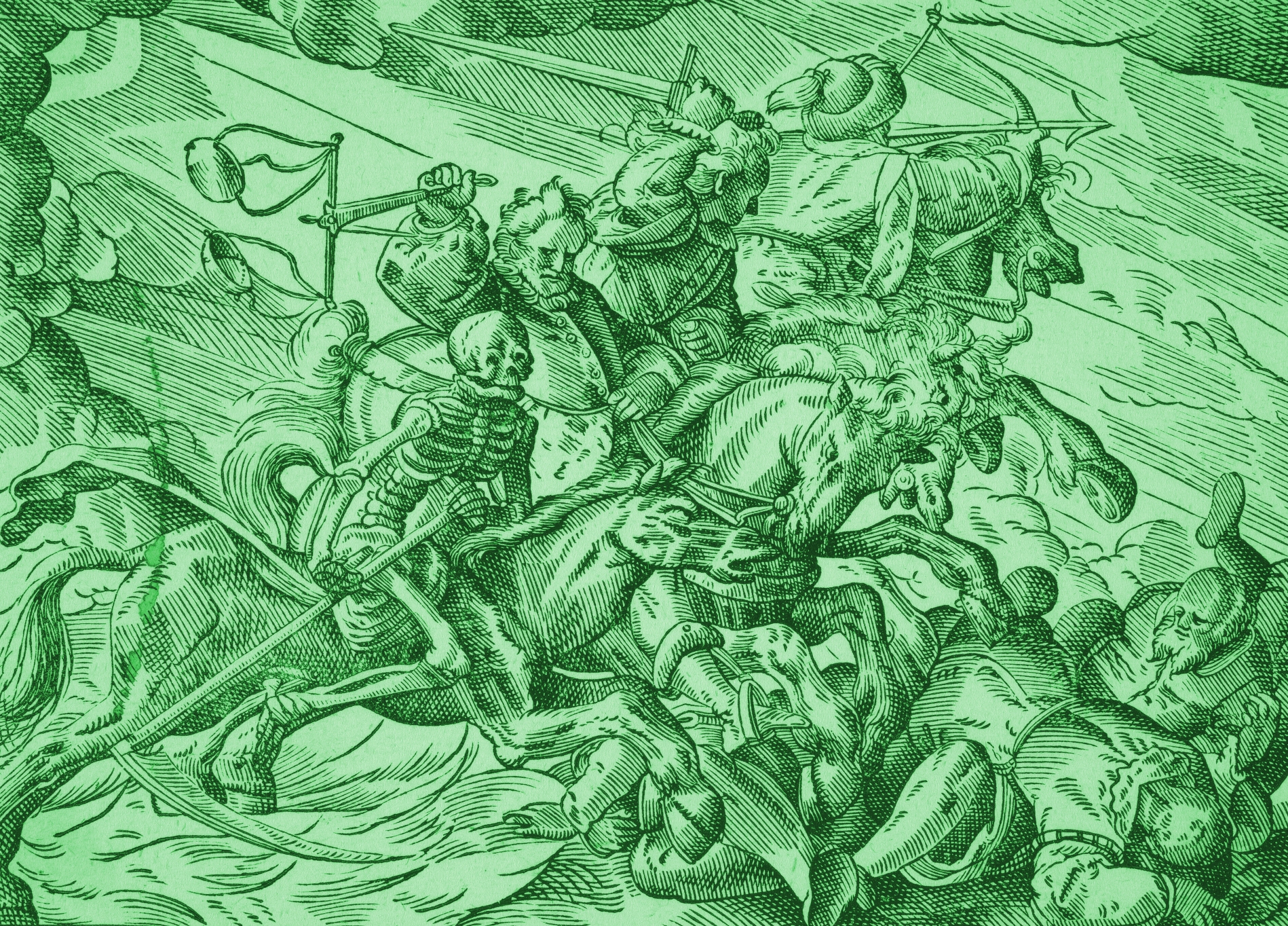
Tim: Thanks very much for agreeing to answer my questions – I know you’re very busy at the moment. Would you care to introduce yourselves.
War: They call me War.
Pestilence: I’m Pestilence.
Famine: Famine at your service.
CC: I go by the name Climate Change.
Tim: Umm, shouldn’t you be Death?
CC: Death retired a few years ago (I believe he now runs a B&B on the edge of Dartmoor). Genocide and I were interviewed as potential replacements. I ended up getting the gig.
Tim: So who handles slaying now?
CC: We all do our own scythe work.
Tim: Why the mountain bike rather than the traditional nag?
CC: I’m concerned about my methane footprint.
Tim: I’d like to begin by asking everyone about their early days in video games. Pestilence, do you recall your debut?
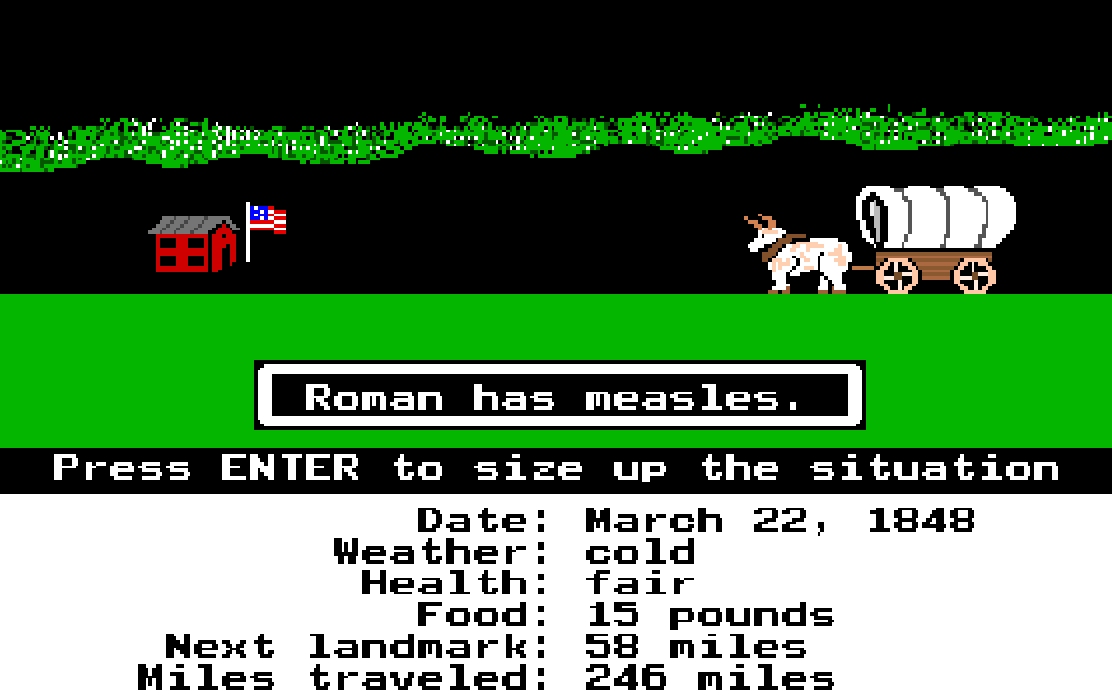
Pestilence: Like it was yesterday. The Oregon Trail – the original 1971 version not the more famous Eighties one. Two of the four possible character fates in Don Rawitsch’s text-based migration sim were diseases. The afflictions weren’t specified until 1985 when Philip Bouchard introduced typhoid, cholera, measles, dysentery, and ‘fever’, and completely changed the way diseases worked. Originally, maladies were always curable if you had sufficient ‘miscellaneous supplies’ and access to a doctor. Bouchard preferred a less binary, more historical approach.
Tim: What about you, Famine? Where did it all start for you?
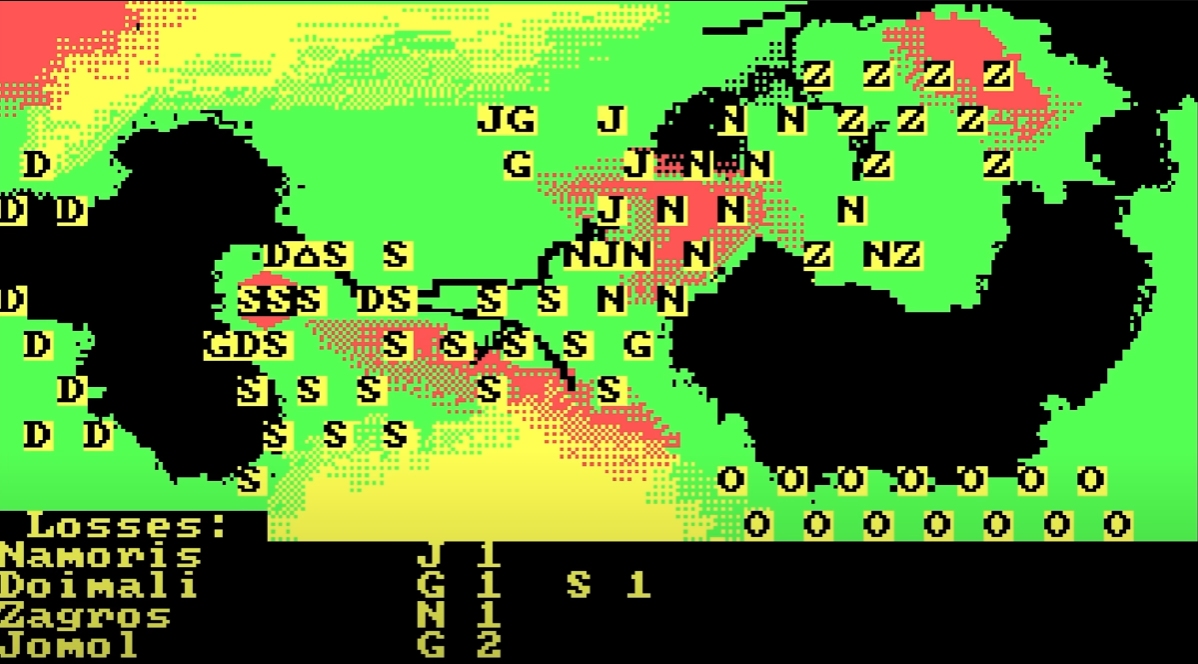
Famine: Incunabula, I believe. Avalon Hill’s largely forgotten pre-Civ Civ-like drew on a 1980 board game design. Famines were one of a clutch of randomly-generated natural disasters (earthquakes, plagues civil wars, insurrections…) that could upset the 4X plans of the player and the various personality-endowed AI factions.
Tim: Do you recall your first virtual venture, War?

War: I’ve been a computer game theme since the get-go. Spacewar! (1962), the title generally acknowledged as the medium’s starting point, involved two human-controlled spaceships – the ‘needle’ and ‘wedge’ – battling each other in the motion-influencing gravity field of a twinkling star. Of course, it would be another eighteen years before a recognisable chunk of military history was transmuted into a digital diversion.
Tim: I’m guessing your gaming career commenced relatively recently, Climate Change?
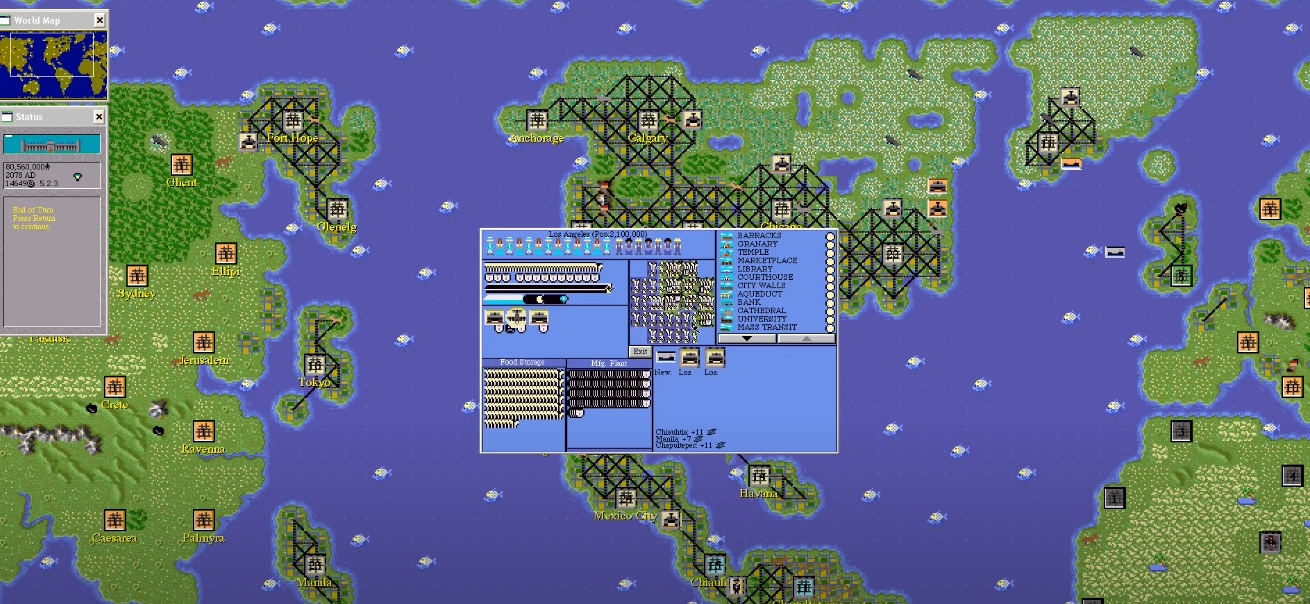
CC: Circa 1991, actually. The very first Civ modelled man-made climate change. Pollution didn’t just cause local production problems. It quietly added to a climate variable that, left unchecked, eventually prompted worldwide map changes. True, there was no domino effect, no tipping points. The rash of floods, desertification, and other terrain square changes would halt when Gaia miraculously recovered her equilibrium. The mechanic might not have been wholly realistic, however in the complacent, hedonistic world of early Nineties gaming, Sid’s interest in the fate of the planet felt revolutionary.
Tim: Famine and Pestilence, I remember reading a piece during my early years as a reviewer – I believe it was in the short-lived PC Quick magazine – in which you both grumbled about being under-represented in video games. Do you still feel that way?
Pestilence: Things have definitely improved for me in the past two decades. Paradox, in particular, have done sterling work bringing pathogens and pustules to the masses. How many different ailments did Crusader Kings 2 finish up with? Twenty? Thirty? Smallpox, plague, typhoid fever, TB, measles… characters could catch a multitude of stat-modifying life-shorteners.
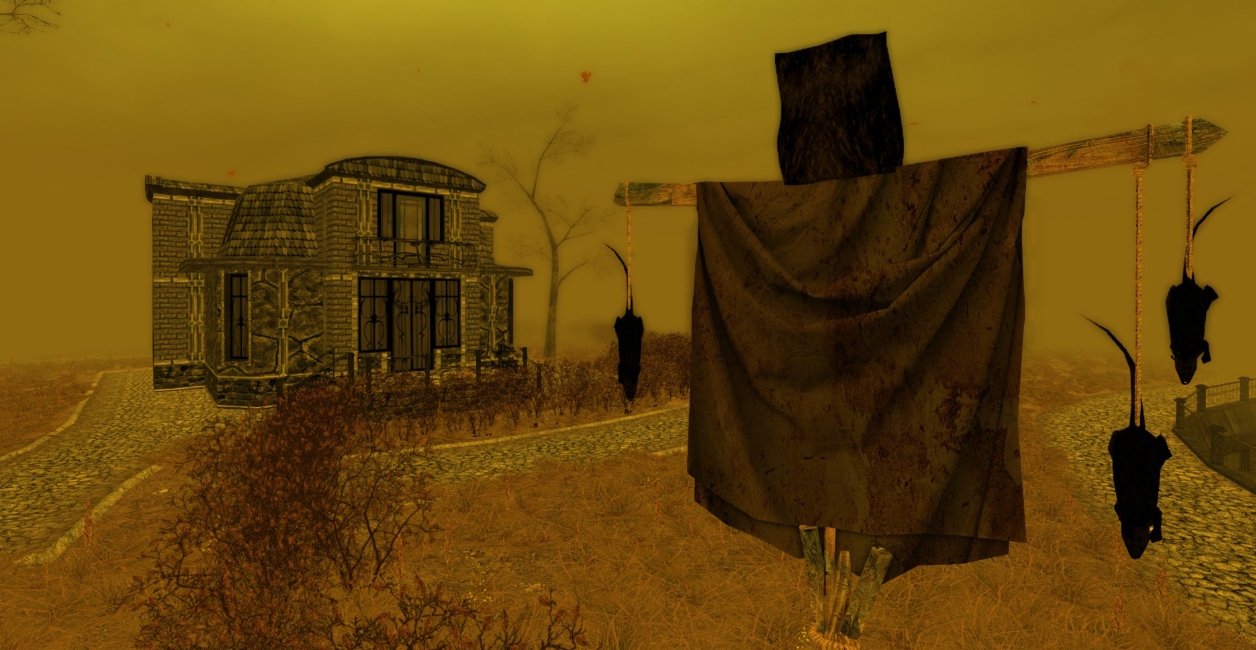
Ice-Pick Lodge also deserve a special mention. Their depiction of a town in the grip of an epidemic was unforgettable. In fact I regard Pathologic as my first real starring role.
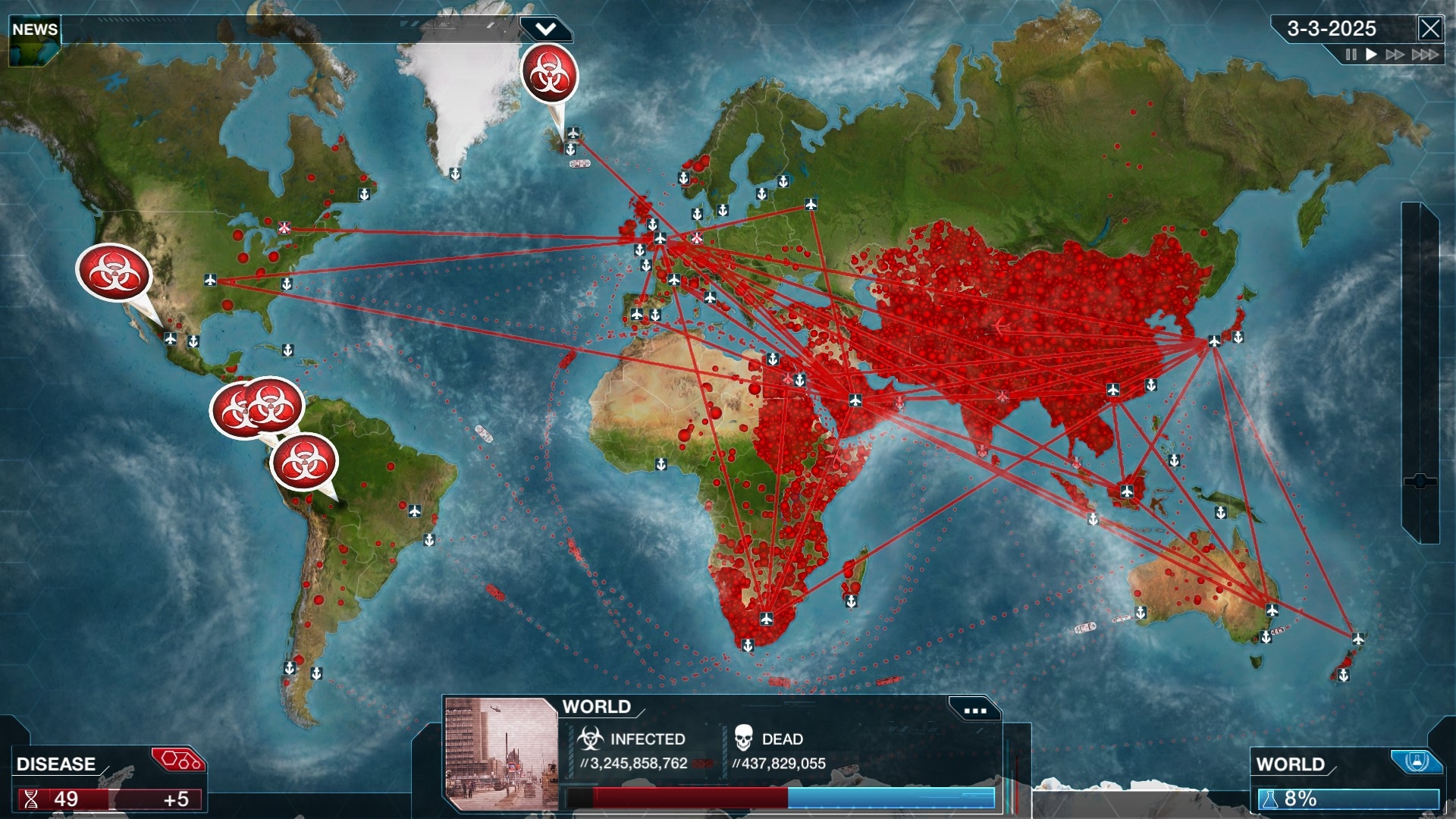
More recently Ndemic Creations offered me something incredibly unexpected – empathy. In the fast-playing, mod-rich Plague Inc: Evolved (£3.80 until March 11) gamers get the chance to wipe out the world’s most pernicious infestation – mankind – by engineering plagues. It’s basically a streamlined taste of my 9-to-5.
Tim: What about you, Famine. Still feel neglected?
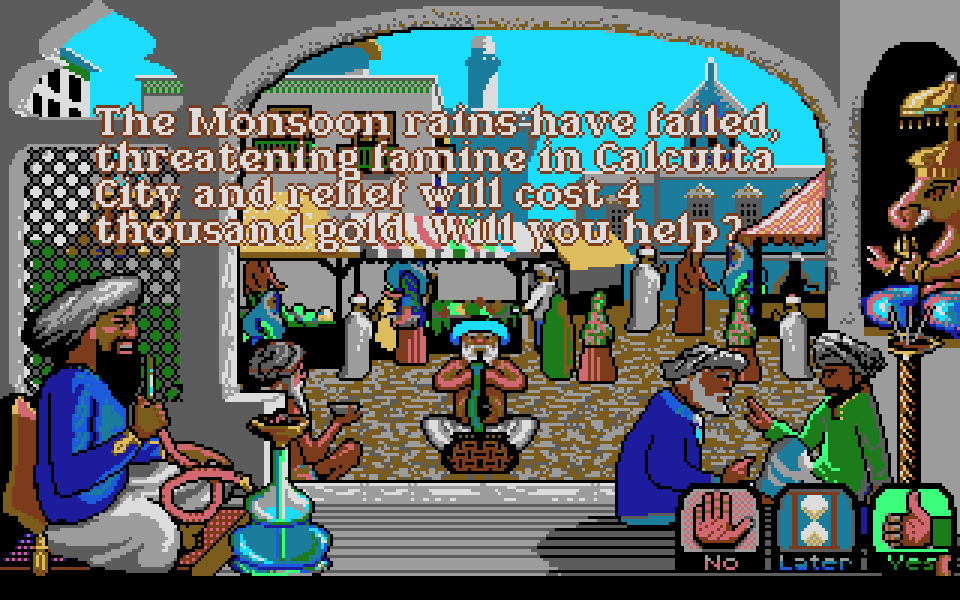
Famine: In a word ‘Yes’. Over the millennia I reckon I’ve slain just as many of you pathetic meatbags as my pals, War and Pestilence, and yet even my most prodigious feats – the two big Chinese famines, and my work in India in the 18th and 19th Century – seem to be of little interest to the games industry.
Tim: Why don’t you get more limelight? Do you have a theory?
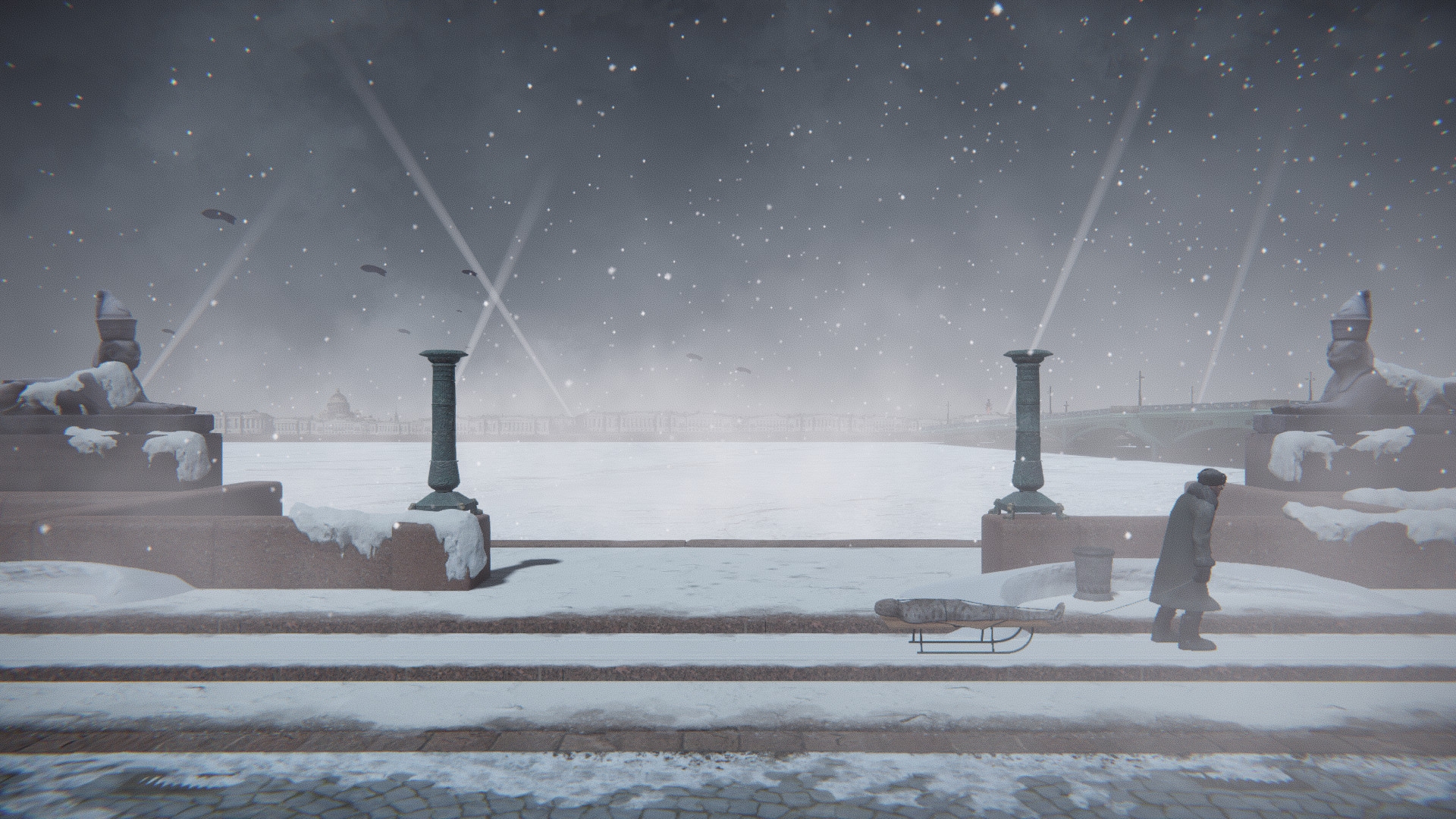
(^ Undying Symphony)
Famine: I get that the average PC punter would rather pull triggers and direct armies, than deliver food aid and deal with chronic malnutrition – that walking skeletons and swollen bellies on box covers and screenshots don’t exactly scream ‘FUN!’. But trust me when I say the mechanics of famines are grimly fascinating, and all of history’s biggest starvation fests have characters all of their own.
Tim: How would you counter the argument that famine – the wellspring of so much human misery, suffering, and grief – isn’t a suitable subject for digital entertainment?
(At this point in the conversation, Famine swivelled in his saddle and pointed a bony index finger at War)
Tim: Point taken. So you’d like to see more devs examining your methods and consequences, and spreading the word about some of your ‘biggest successes’?
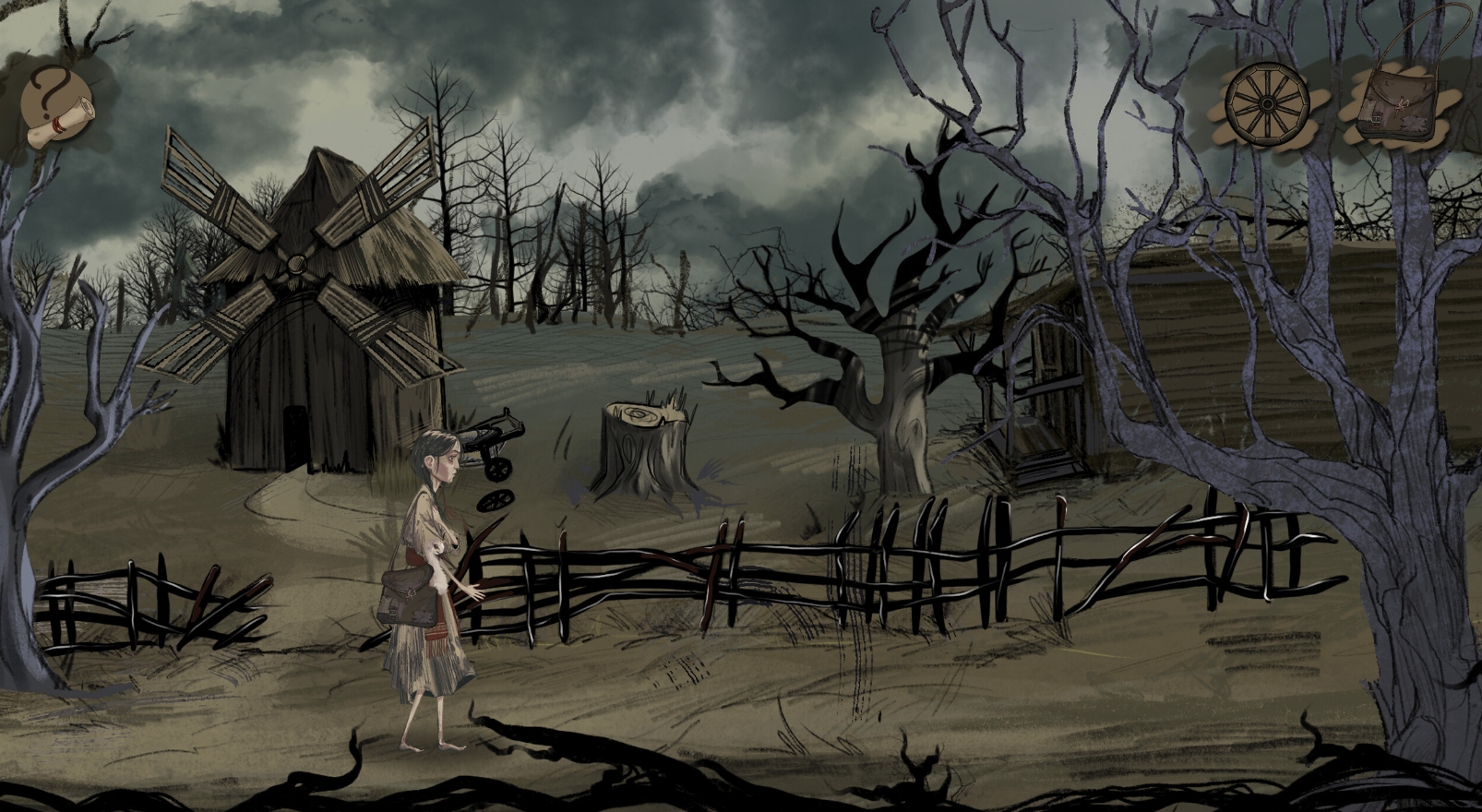
(^ Famine Way)
Famine: Definitely. How is it your average historically literate wargamer can tell a Tiger tank from a Panther at a thousand yards, and reel off the dates of the Battles of Waterloo, Gettysburg, and the Bulge without a second thought, yet would struggle to tell you when the Holomodor occurred, or explain the causes of the 1943 Bengal Famine? Why when I do an online search for games set during the Irish Potato Famine or the Smash Sparrows Campaign do I draw a blank?
It’s bizarre, these days every other game seems to feature a hunger meter, yet titles dealing with actual famines are almost unheard of.
Tim: War, I’m guessing you don’t have any complaints about the way you’re treated by the games industry?
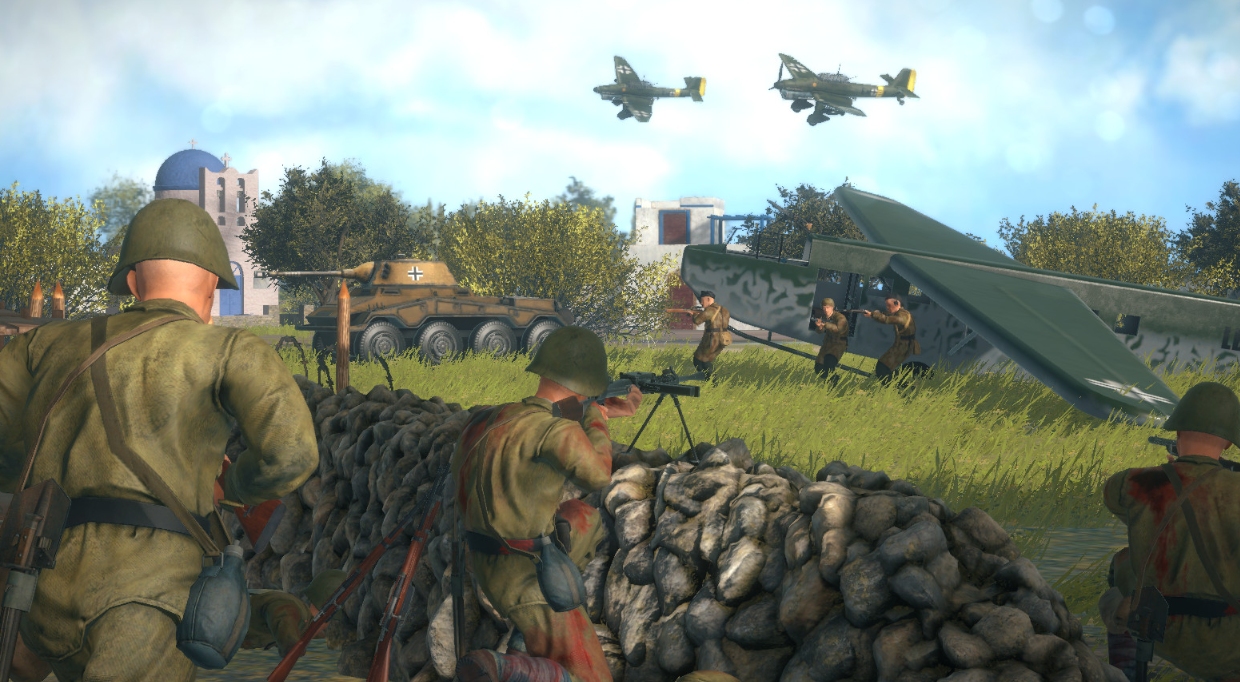
(^ Easy Red 2)
War: The amount of attention I get is, frankly, embarrassing. The narrow focus of most conflict games does give me pause for thought though.
Tim: Do go on.
War: While most war-themed PC games capture my likeable sides – my talent for producing spectacle and excitement, and generating interesting tactical and strategic dilemmas – almost none endeavour to paint me warts and all.
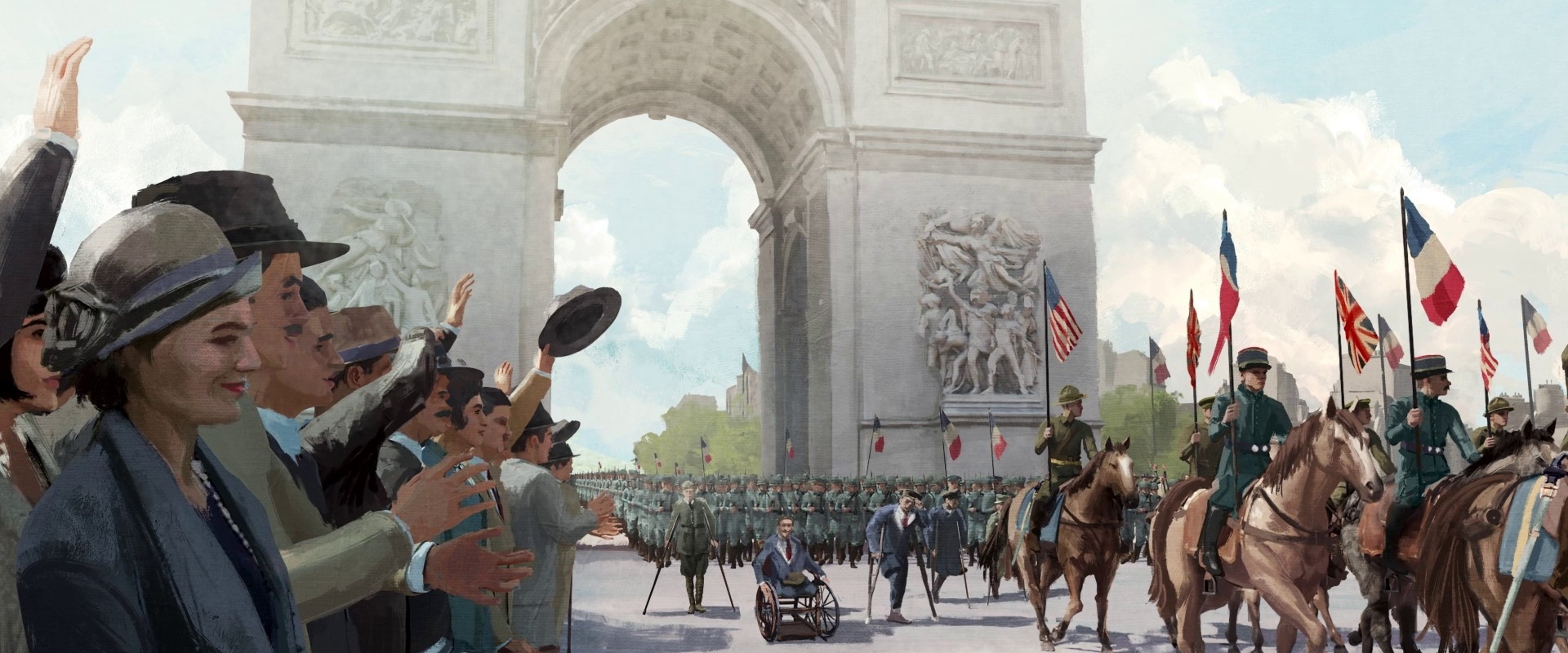
Cards on table, during office hours I’m a cruel, grisly, capricious, indiscriminate ***t. I maim bodies, I ***k-up minds, shatter families, crush hopes, and prey on the innocent as keenly as I prey on the guilty. Basically, I’m your worst ***king nightmare, yet most war games seem determined to conceal this fact from their players. In one sense the coyness is great – I couldn’t do my job without a steady supply of the principled, the brave, the patriotic, the desperate, the violent, and the ignorant. For years much of the games industry has been doing grand work ensuring I never run short of the latter.
Tim: Blimey, that’s pretty strong. You really believe the games industry makes your job easier?
(To be continued)

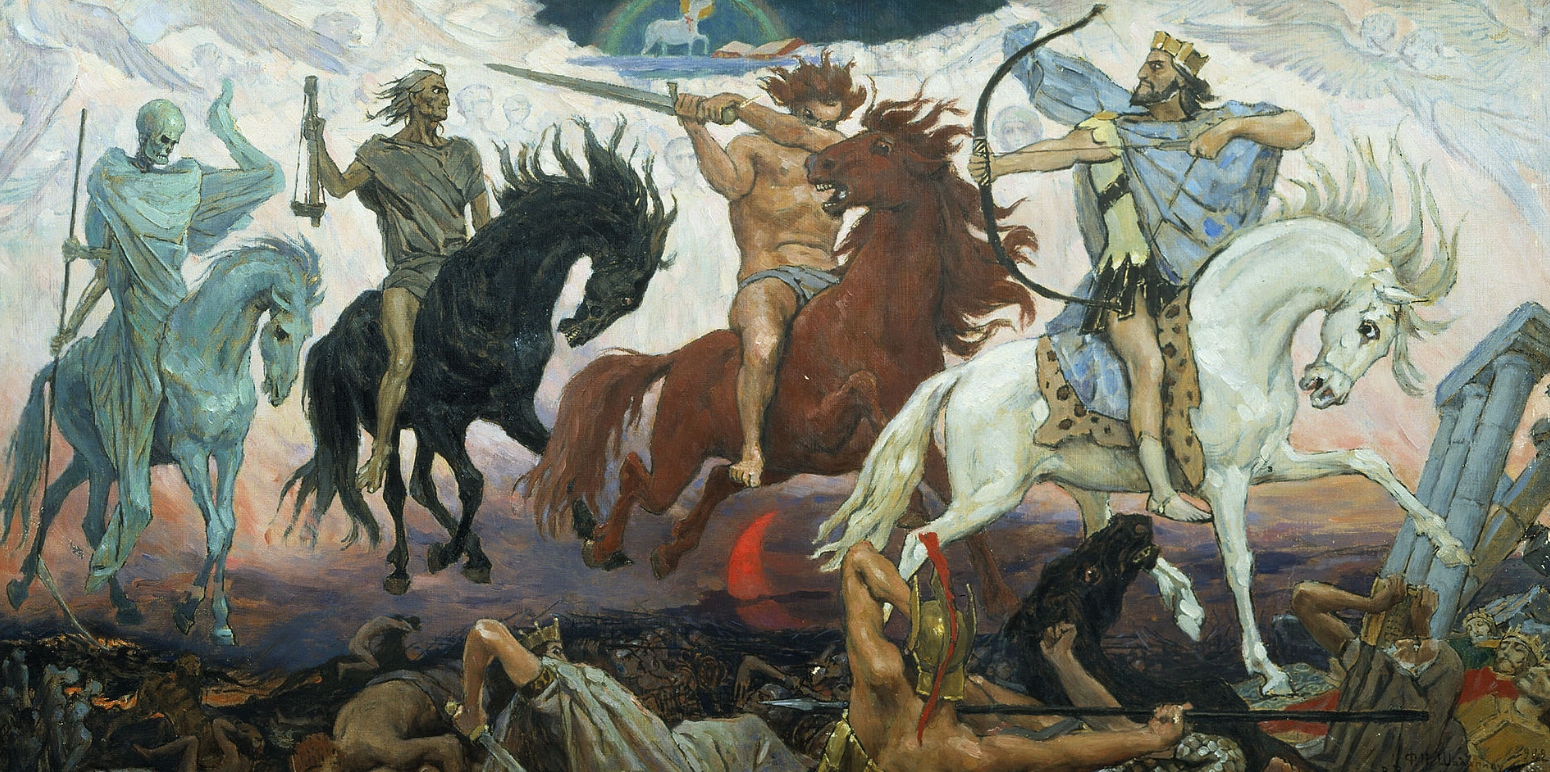
Fun read! I feel like Politics could have been riding right with them, possibly good chums with War and gunning for Famine’s spot…
I expect part 2 will involve trying to find a game for them to all play together: CC enjoys Beecarbonize but Famine is fed up to the back teeth with card games.
Nice work, Tim!
Your “interviews” are one of my favourite THC features.
I laughed. I started right there with `I know you´re very busy at the moment` One could argue, that maybe I shouldn´t have, but it helped. Thank you Tim, you made something very special here. It is the second piece of media, that warmed my heart today.
Poor sparrows, though.
What first got me was the bit about CC taking over for Death. Reminded me of Pratchett’s Mort, which is to say a book-full of laughs came out in just that little turn of conversation.
Thanks, all. I was debating whether to run Part II of this. These comments have made up my mind.
Bravo! Not only was this good but also important.